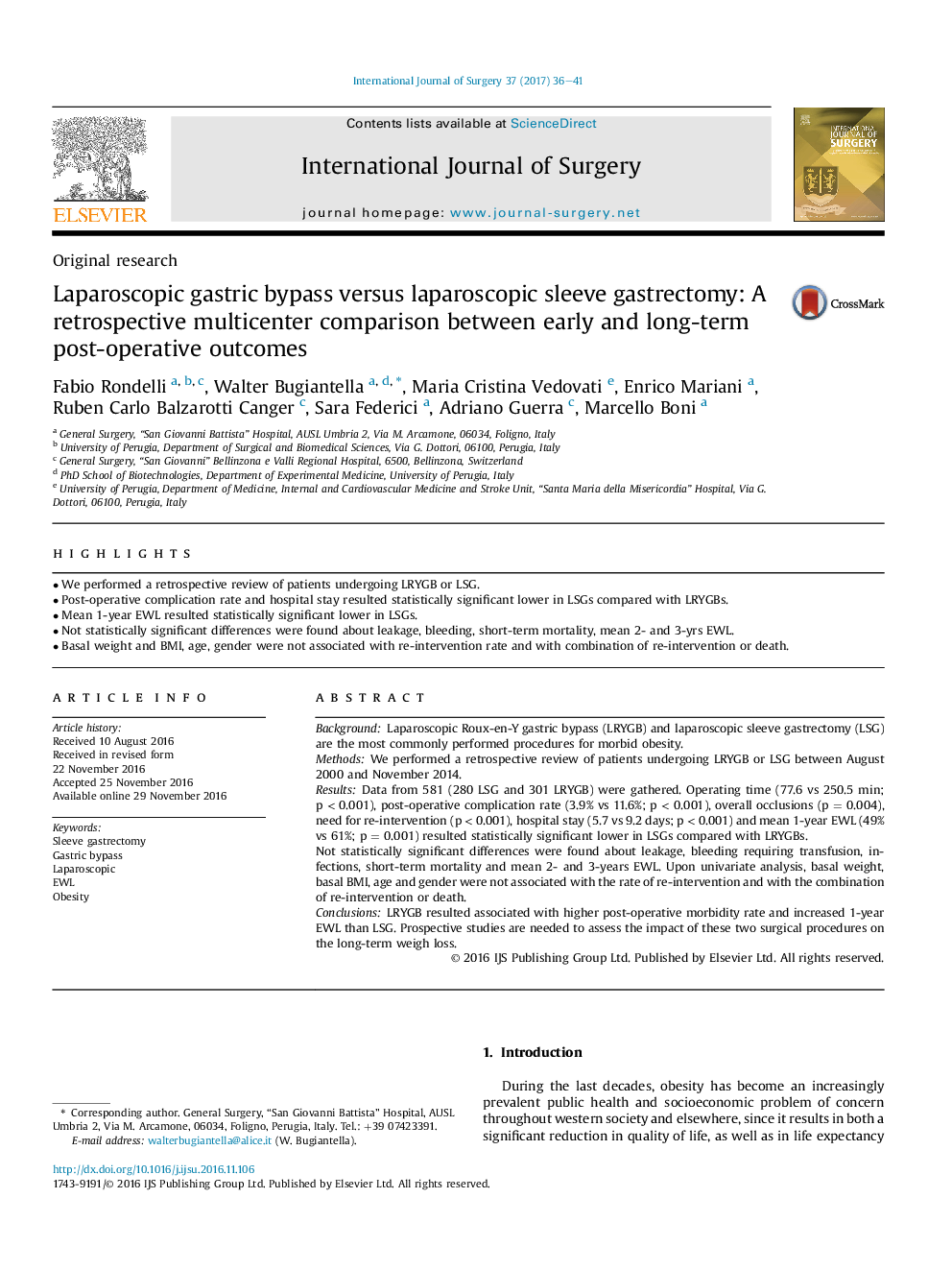| Article ID | Journal | Published Year | Pages | File Type |
|---|---|---|---|---|
| 5732410 | International Journal of Surgery | 2017 | 6 Pages |
â¢We performed a retrospective review of patients undergoing LRYGB or LSG.â¢Post-operative complication rate and hospital stay resulted statistically significant lower in LSGs compared with LRYGBs.â¢Mean 1-year EWL resulted statistically significant lower in LSGs.â¢Not statistically significant differences were found about leakage, bleeding, short-term mortality, mean 2- and 3-yrs EWL.â¢Basal weight and BMI, age, gender were not associated with re-intervention rate and with combination of re-intervention or death.
BackgroundLaparoscopic Roux-en-Y gastric bypass (LRYGB) and laparoscopic sleeve gastrectomy (LSG) are the most commonly performed procedures for morbid obesity.MethodsWe performed a retrospective review of patients undergoing LRYGB or LSG between August 2000 and November 2014.ResultsData from 581 (280 LSG and 301 LRYGB) were gathered. Operating time (77.6 vs 250.5 min; p < 0.001), post-operative complication rate (3.9% vs 11.6%; p < 0.001), overall occlusions (p = 0.004), need for re-intervention (p < 0.001), hospital stay (5.7 vs 9.2 days; p < 0.001) and mean 1-year EWL (49% vs 61%; p = 0.001) resulted statistically significant lower in LSGs compared with LRYGBs.Not statistically significant differences were found about leakage, bleeding requiring transfusion, infections, short-term mortality and mean 2- and 3-years EWL. Upon univariate analysis, basal weight, basal BMI, age and gender were not associated with the rate of re-intervention and with the combination of re-intervention or death.ConclusionsLRYGB resulted associated with higher post-operative morbidity rate and increased 1-year EWL than LSG. Prospective studies are needed to assess the impact of these two surgical procedures on the long-term weigh loss.
